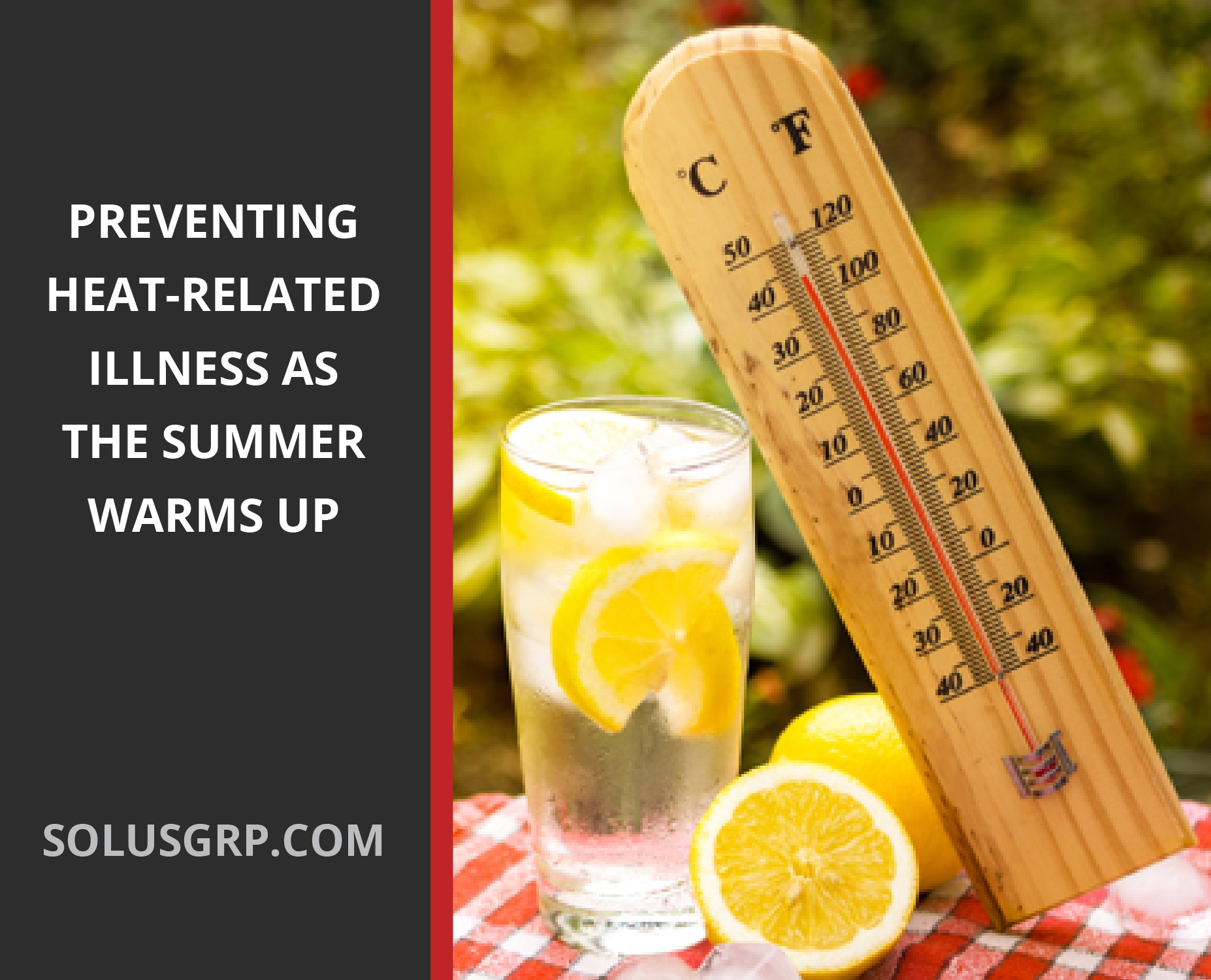We use cookies to make your experience better. To comply with the new e-Privacy directive, we need to ask for your consent to set the cookies. Learn more.
Preventing Heat-Related Illness as the Summer Warms Up
As we head into summer, temperatures rise and so do the chances of getting a heat-related illness. This umbrella term refers to conditions like heat stroke, sunburn, and heat rash, which occur when someone spends too much time or exerts too much energy in the heat.
Certain groups of people — outdoor workers, the elderly, children, and athletes — have an elevated risk of being affected and should be especially cautious when temperatures climb. Here are some simple steps to help people avoid heat-related illnesses this summer:
Take frequent breaks — in an air-conditioned building or the shade when possible.
This commonsense suggestion can be forgotten when workers are on a deadline or a determined athlete is training. However, to avoid heat-related illnesses, it's essential to limit exposure to high temperatures. Taking a break in the AC can help lower the body's temperature and prepare someone for more time outside.
Avoid being outside during the hours of 10 am to 4 pm.
A great way to beat the heat is to avoid UV rays at their strongest. Schedule outdoor activities, like walking the dog or mowing the lawn, in the early morning or evening.
Plan around the forecast.
If your local weatherman warns of dangerously hot temperatures, take note. You'll want to limit you and your children's time outside. Make sure your vulnerable relatives have a working air conditioner and are staying cool.
If you're managing a work crew, make sure workers are rotating out of the hottest, most-demanding jobs. Use assistive lifting devices to reduce exertion, and whenever possible, let workers take breaks in a cool place. 
Wear sunscreen.
Sunscreen can protect you from painful sunburns and dangerous skin cancer. The American Academy of Dermatology recommends using a water-resistant, broad-spectrum sunscreen of SPF 30 or higher whenever you go outside.
This may seem like overkill, but one in five Americans will develop skin cancer by age 70, and it's entirely avoidable with prudent sunscreen use. Using a moisturizer that contains sunscreen is a great way to ensure you have at least some protection from the sun every day.
Drink plenty of fluids.
Being well-hydrated doesn't guarantee you won't get heat illness, but it can help protect you. A scientific study found that adding ice cubes to your drink can improve your endurance in the heat by lowering your body temperature. Just be sure to avoid sugary or alcoholic drinks, as these can cause your body to lose more fluids.
Acclimate slowly when exercising or working long periods of time in the heat.
The primary factor that predisposes someone to heat illness is being under-acclimatized. When temperatures jump dramatically, scale back your time outside. If you have no choice, be sure to watch for the signs of heat illness while taking plenty of breaks and drinking plenty of cold water.
Summer is the time to work and play outdoors. Don't let a heat-related illness get in the way of your summer fun.
References:
Brody, Jane. "In Summer's Heat, Watch What You Drink." NYTimes. The New York Times Company, 28 Jun. 2010. Web. 27 Mar. 2018.
"How Do I Protect Myself from UV Rays?" Cancer. American Cancer Society, 22 May 2017. Web. 27 Mar. 2018.
Lee, Jason, Susan Shirreffs, and Ronald Maughan. "Cold Drink Ingestion Improves Exercise Endurance Capacity in the Heat." LWW. Medicine & Science in Sports & Exercise, Sept. 2008. Web. 27 Mar. 2018.
"Preventing Vulnerable Groups from Extreme Heat." CDC. Centers for Disease Control and Prevention, n.d. Web. 27 Mar. 2018.
"Protective Measures to Take at Each Risk Level." OSHA. Occupational Safety and Health Administration, U.S. Department of Labor, n.d. Web. 27 Mar. 2018.
Reynolds, Gretchen. "How to Avoid Heatstroke." NYTimes. The New York Times Company, 29 July 2009. Web. 27 Mar. 2018.
"Sunscreen FAQs." AAD. American Academy of Dermatology, 2018. Web. 27 Mar. 2018.
